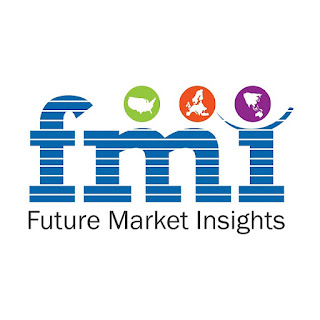Unlocking Precision Medicine: Forecasting the Companion Diagnostics Market By 2023 to 2033
A rapidly expanding area of personalised medicine is the Companion Diagnostics Market. Companion diagnostics are medical tests that reveal details about a patient's genetic or molecular profile to help choose and administer particular treatments. They assist medical professionals in customising treatment programmes for specific patients, enhancing the efficacy and security of various therapeutic approaches.
By identifying patients who are most likely to benefit from a particular medication and those who might have negative side effects, companion diagnostics play a critical role in precision medicine. Companion diagnostics assist in matching patients with tailored therapies by analysing biomarkers, such as genetic mutations or protein expression levels. This improves treatment outcomes and reduces the use of inefficient or potentially hazardous pharmaceuticals.
Unlock Insights: Download the Sample Report to Understand the Rising Demand for Companion Diagnostics Market @
https://www.futuremarketinsights.com/reports/sample/rep-gb-1255
The global companion diagnostics market is expected to generate US$ 10560.0 million in sales by 2033, up from US$ 5371.9 million in 2023. During the forecast period, the companion diagnostics industry may blossom at a CAGR of 7.0%.
The need for companion diagnostics is growing because they can help identify patients who cannot be cured but may nonetheless be harmed by the use of a particular medicine to treat their ailment. The use of companion diagnostics is employed to identify potential therapeutic candidates. Additionally, the companion diagnostics industry is expanding as a result of technology advancements that have fundamentally changed how diseases are treated as a whole.
Key factors driving the growth of the companion diagnostics market include:
- Increasing prevalence of cancer and other complex diseases: Companion diagnostics are extensively used in oncology to identify patients with specific genetic mutations or biomarkers that make them eligible for targeted therapies. As the incidence of cancer and other complex diseases continues to rise, the demand for companion diagnostics is also increasing.
- Growing adoption of personalized medicine: Personalized medicine aims to provide tailored treatment strategies based on an individual's unique genetic profile. Companion diagnostics are a crucial component of personalized medicine, enabling healthcare providers to select the most appropriate therapy for each patient. The increasing adoption of personalized medicine is driving the demand for companion diagnostics.
- Advancements in genomic technologies: Rapid advancements in genomic technologies, such as next-generation sequencing (NGS) and polymerase chain reaction (PCR), have significantly enhanced the ability to analyze genetic and molecular biomarkers. These technological advancements have facilitated the development of more accurate and efficient companion diagnostic tests, further fueling market growth.
- Regulatory support and reimbursement policies: Regulatory agencies, such as the U.S. Food and Drug Administration (FDA) and the European Medicines Agency (EMA), have recognized the importance of companion diagnostics and have implemented guidelines for their development and approval. Additionally, favorable reimbursement policies for companion diagnostic tests have encouraged their adoption in clinical practice.
- Collaborations between pharmaceutical companies and diagnostic manufacturers: Many pharmaceutical companies are partnering with diagnostic manufacturers to develop companion diagnostics alongside their therapeutic products. These collaborations ensure the simultaneous development and approval of companion diagnostics and targeted therapies, leading to faster market entry and increased adoption.
Companion Diagnostics Market: Competition Analysis
The FMI’s study presents a comprehensive analysis of global, regional, and country-level players active in the Companion Diagnostics market. Competitive information detailed in the Companion Diagnostics market report has been based on innovative product launches, distribution channels, local networks, industrial penetration, production methods, and revenue generation of each market player. Furthermore, growth strategies and mergers & acquisitions (M&A) activities associated with the players are enclosed in the Companion Diagnostics market report.
Key Players Covered in The Report Include:
- ARUP Laboratories,
- Roche Molecular Systems Inc.,
- Dako Inc.,
- Qiagen Ltd.,
- bioMérieux Inc.,
- Ventana Medical Systems Inc.,
- Abbott Molecular Inc.,
Companion Diagnostics Market: Segmentation
Valuable information covered in the FMI’s Companion Diagnostics market report has been segregated into key segments and sub-segments.
By Application
- Colorectal Cancer
- Breast Cancer
- Lung Cancer
- Melanoma
- Urology
- Gastric Cancer
By Technology
- Immunohistochemistry
- Molecular Diagnostics
- In-situ Hybridization
- FISH
- CISH
- Real Time PCR
- Gene Sequencing
By Region:
- North America
- Latin America
- Asia Pacific
- The Middle East and Africa
- Europe

Comments
Post a Comment